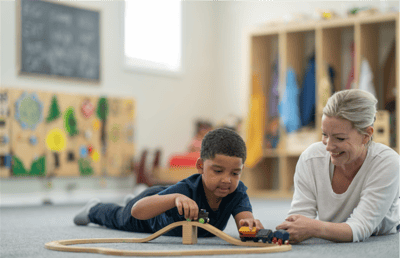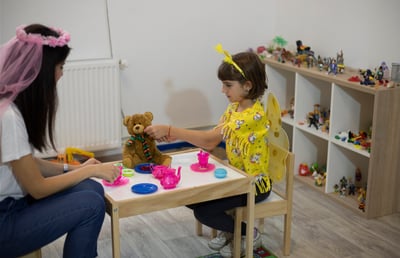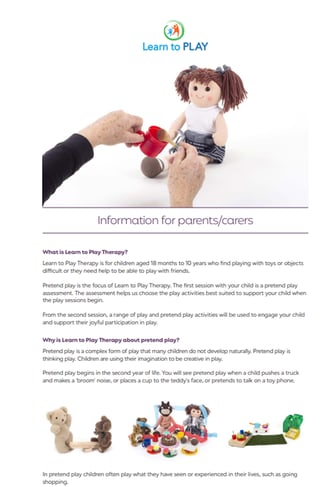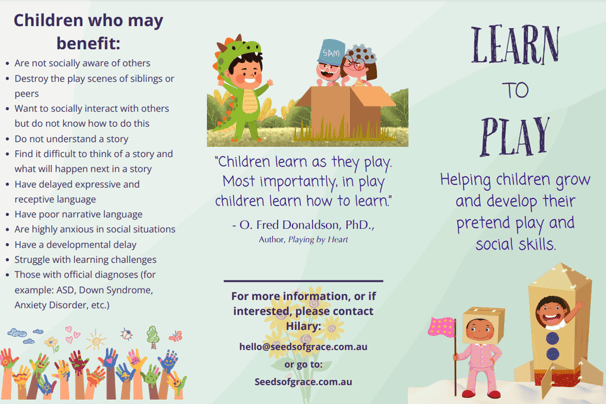Capacity Building: Pretend Play Program
Often as adults, we think that intense pretend play stems from a great imagination. However, for many children, they can have very vivid imaginations and sometimes struggle to put those thoughts into play.
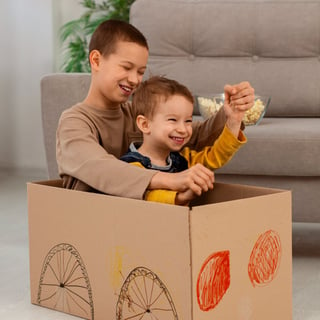

Image link here
This is where the Pretend Play Program can help. This is an amazing therapeutic modality that coaches children in the art of pretend play. Yes, it can be taught! Research has shown that being able to play pretend increase pre-literacy scores, enhances social skills, develops self-regulation and self-esteem, and increase language skills.
The Pretend Play Program follows Australian Occupational Therapist and Emeritus Professor Karen Stagnitti's Learn to Play Program. Karen noticed that many of her clients had trouble advancing in their OT skills because they lacked some pretend play abilities. She crafted Learn to Play to help them develop these skills.
The Pretend Play Program is ideal for children ages 18 months to 10 years who find it difficult to play with toys or engage with others in play. Sessions are typically 45 minutes in length, and use a combination of direct modelling, scaffolding, and gradual release to help children learn six pretend play skills (download the brochure below on the left for more information on these).
If you think your child could benefit from the Pretend Play Program, contact us here to book a free 15 minute phone consultation.
Pretend play is of vital importance for the healthy development of children. From a developmental perspective, play offers ample physical, emotional, cognitive, and social benefits. It allows children and adolescents to develop motor skills, experiment with their (social) behavioural repertoire, simulate alternative scenarios, and address the various positive and negative consequences of their behaviour in a safe and engaging context.






